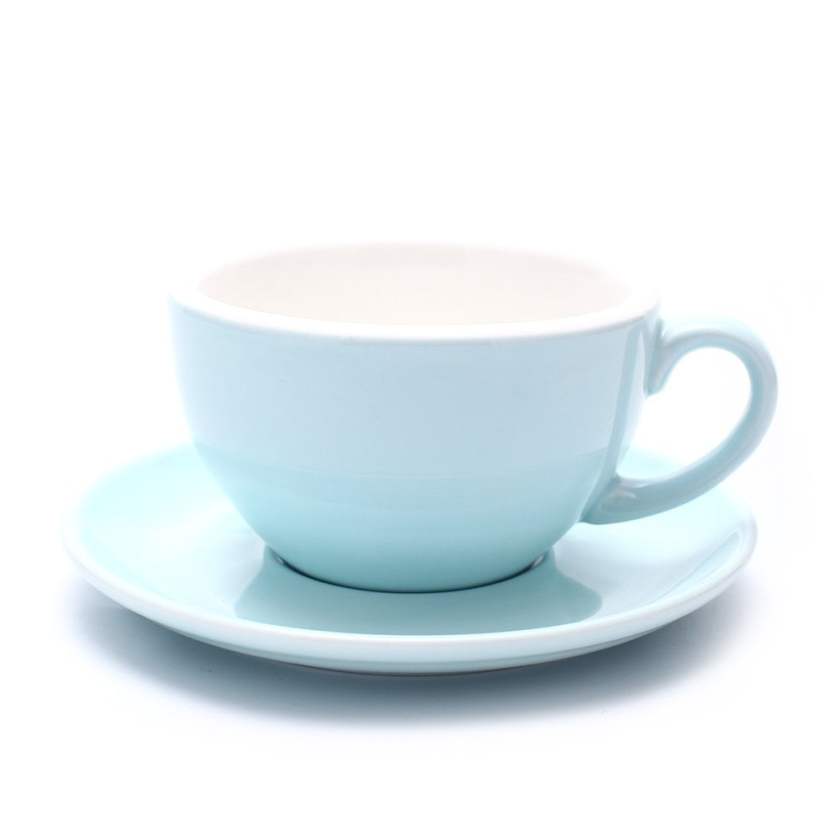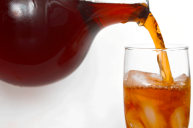How do you drink your coffee? So many of us grab our grande pumpkin spice latte on the go, or if you make your favorite coffee drink at home, you probably have a favorite mug. Up until the not so distant past, though, almost all coffee cups were part of a two-piece set that included a cup and a saucer. The saucer was something a person could hold while the cup was still too hot to drink from, but people also used to drink coffee from the saucer.
Videos by Wide Open Country
When you're sitting at your local coffee shop on a rainy Sunday and you're served a cup of coffee, you probably don't think twice about the saucer it's served on. In the coffee industry, the saucer is perfect for convenient and cleanliness, as it provides a place to catch any spills and makes it easy to carry the coffee across a busy coffeeshop. The saucer also functions as a plate for any snack or pastry you may be enjoying with your cup of joe. However, the meaning and history behind this practice goes back far beyond your local cafe's serving techniques.
Did People Really Drink Coffee From A Saucer?
To learn about this history of cups and saucers, first we need to look at the history of tea cups and coffee cups in the first place. Tea cups were created in the 1700s as cups made of porcelain and clay, imported by the East India Trading Company from China. In 1750, handles were added to the cups to make them easier to hold.
Saucers were added to the design of both coffee cups and tea cups in the 1700s as well. Although drinking tea from a tea bowl was customary, tea drinkers eventually found that pouring a small amount of tea into a saucer helped it to cool faster. Because of this, saucers became a commonplace part of a tea or coffee setup, allowing people to enjoy their beverage without burning their tongues or having to wait long amounts of time as the beverage cooled.

Getty Images/alvarez
Because coffee was boiled, it was served extremely hot. Saucers, some of which were more like shallow bowls, allowed the liquid to cool faster by spreading it over more surface area. It was more efficient, and more polite, to drink coffee from a saucer rather than slurping it while it was hot.
It's not clear where drinking coffee or tea from the saucer started as a practice. There are references to the practice being common in Russia and Scandinavia. In Sweden, they purposely overfilled their cup so they could drink from the saucer; they would hold a lump of sugar in their front teeth and sip the hot beverage through it in a tradition called "dricka på bit" or "drink with a lump."
The practice was common during the 18th century and, in fact, was used to explain a key bit of how the American government was formed. The story goes that Thomas Jefferson was in France during the Constitutional Convention; when he returned to the United States, he asked why the delegates created two houses of Congress:
"Why did you pour that tea into your saucer?" asked George Washington. "To cool it," said Jefferson. "Even so," responded Washington, "we pour legislation into the senatorial saucer to cool it."
The practice of saucering lasted well into the 20th century, although it was used less and less in what was considered polite society. If you read the Little House on the Prarie books growing up, maybe you remember the bit in "Farmer Boy" with the description of Father Wilder drinking tea out of the saucer instead of the cup:
Eliza Jane was more bossy than ever. She said Almanzo's boots made too much noise. She even told Mother that she was mortified because Father drank tea from his saucer.
"My land! how else would he cool it?" Mother asked.
"It isn't the style to drink out of saucers any more," Eliza Jane said. "Nice people drink out of the cup."
Today, drinking coffee from a saucer isn't standard practice in the U.S. You might run into some older folks who remember it, but even if you're able to find a coffee shop that serves coffee cups with saucers, chances are you won't see anyone drink from it.
Editor's Note: Products featured on Wide Open Country are independently selected by our editors. However, when you buy something through our links, we may earn a commission.






